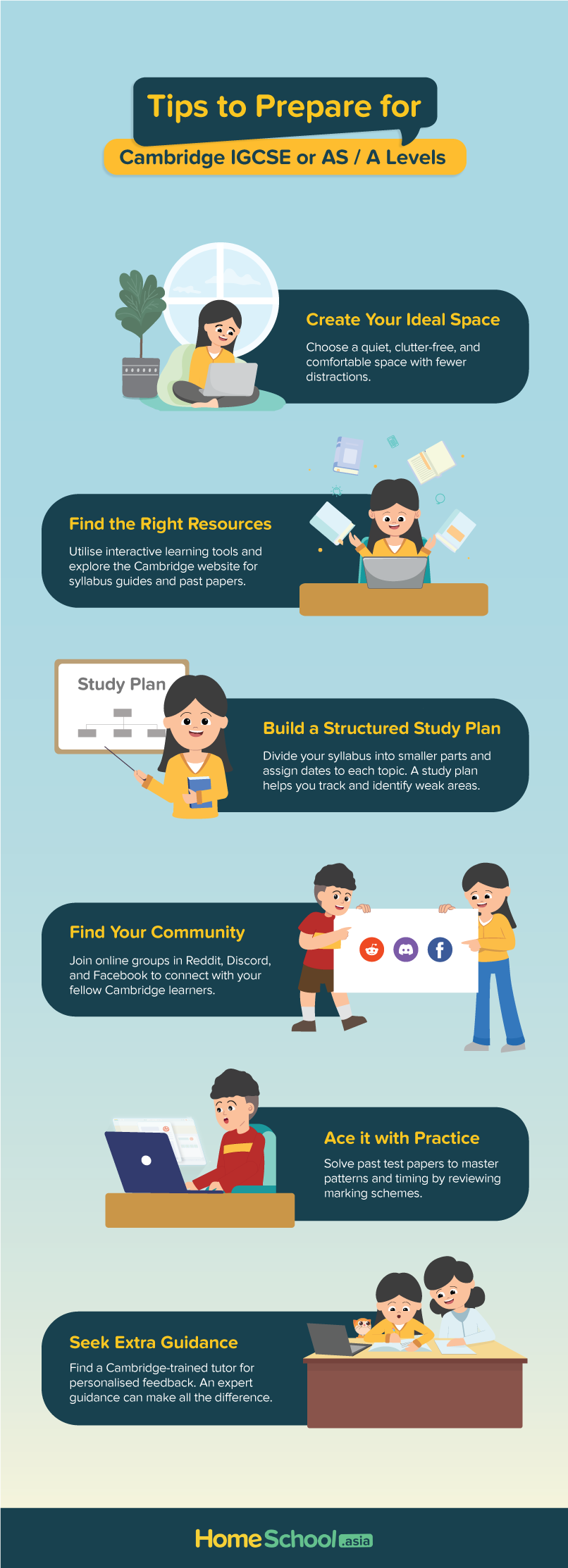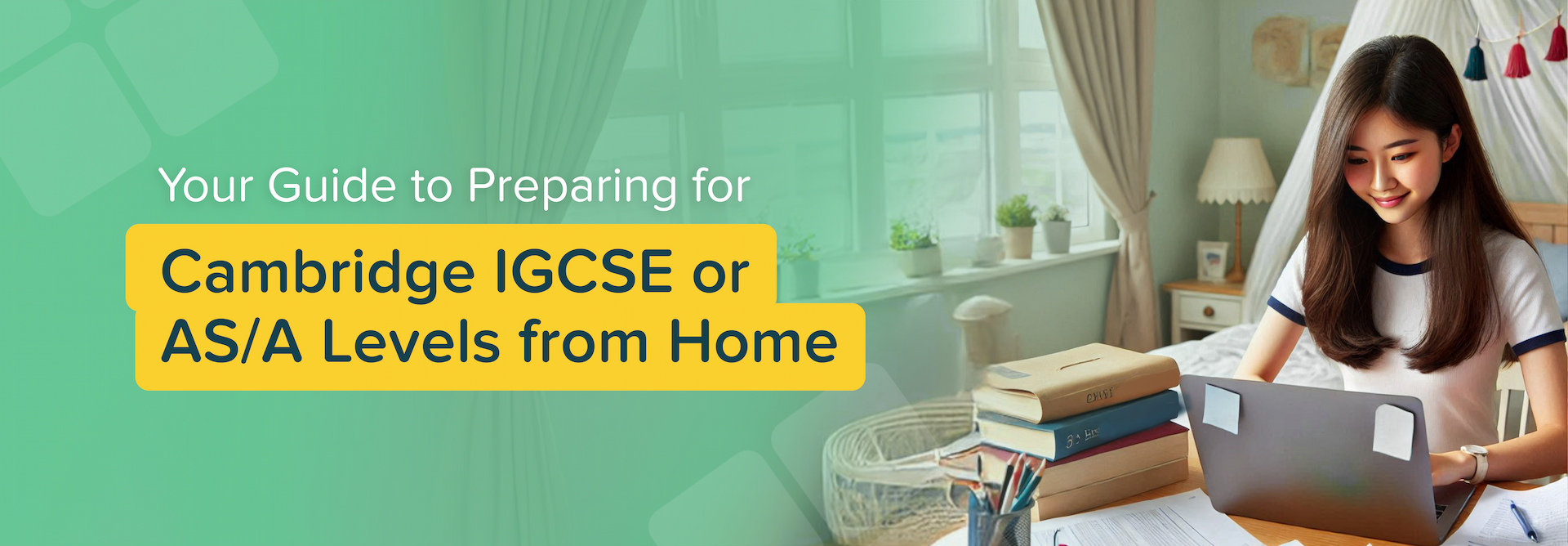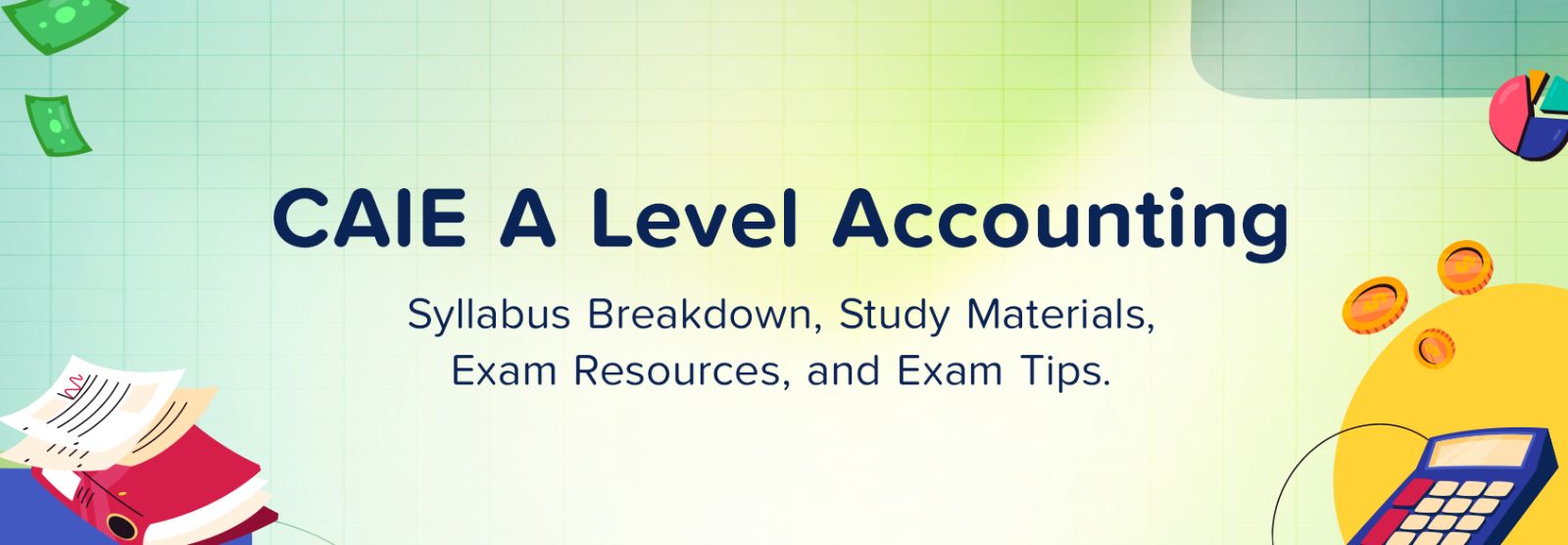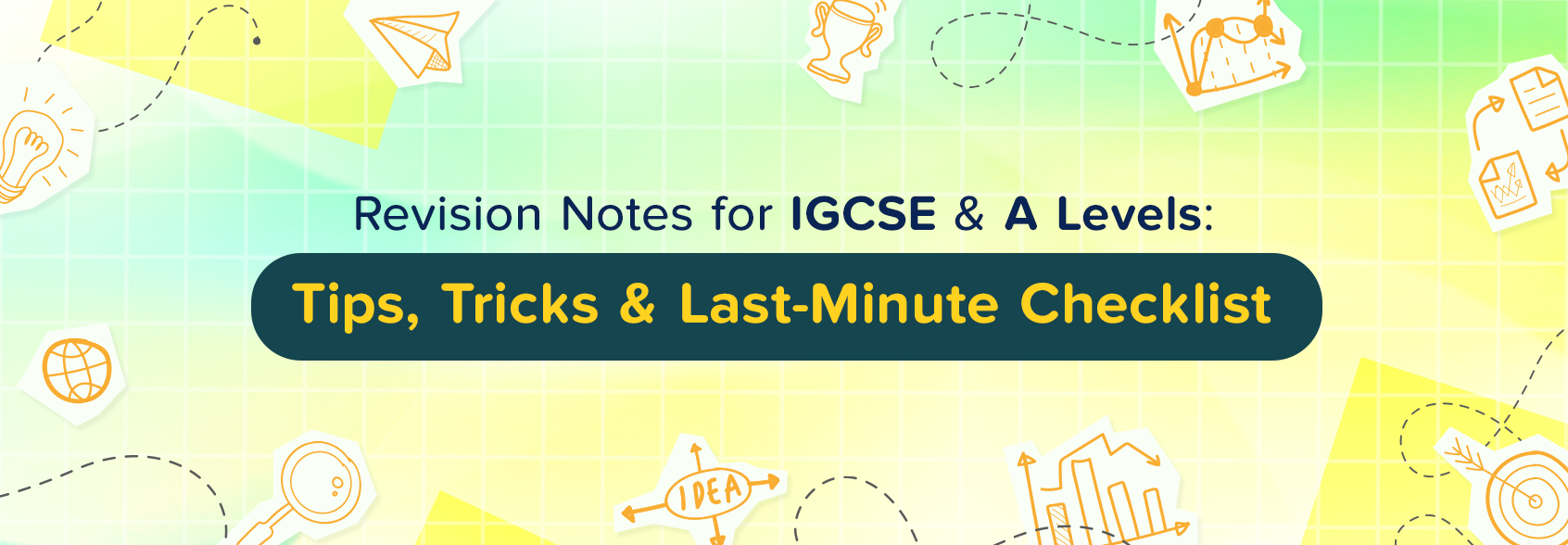Today, students have the competitive advantage of accessing a wide range of learning resources from the comfort of their homes. However, many students face challenges when learning independently, especially finding reliable resources and developing a well-organised study approach.
Preparing for Cambridge IGCSE & AS / A Levels indeed requires hard work; along with that, you also need the right guidance and support. This is especially true if you are planning to do it all on your own. The biggest problem students face when studying at home is accessing learning resources and having the right tutor guidance that supports them from start to finish.
However, the most important thing for a student navigating learning and exam preparation from the comfort of their home is having a structured learning approach that aligns with their study environment.
Top self-study tips to ace your IGCSE & A Level exams
Successfully preparing for your IGCSE and A Level exams requires more than just hard work. The following are the self-study tips that will help you stay organized, motivated, and on track to ace your exams.

Create your Ideal Space
The best part about learning from home is that you can choose your ideal learning space. Choose a space that is distraction-free, clutter-free, and, most importantly, noise-free. A clean and comfortable space, paired with some self-discipline, is set to make your learning productive.
Find the Right Resources
If you know where to search, finding resources won't be a challenge. Seek out platforms like HomeSchoolAsia or tools that offer interactive features, as they can greatly enhance your learning experience. Be sure to explore the officialCambridge website for syllabus guides and past papers. Just make sure everything is reliable and up-to-date - these are your best allies.
Build a Structured Study Plan
Finding the right resources alone is not enough. You need to create a proper study plan with those learning materials. Start by selecting a subject and breaking down the syllabus into manageable chunks. Assign specific dates and times to each topic, ensuring a balanced approach. A well-organised plan tracks your learning and identifies the areas that need extra attention.
Find your Community
Learning from home doesn't mean learning alone. Having a sense of community & collaboration makes learning much easier, which is why joining online communities of fellow Cambridge learners can be of great help. Platforms like Reddit, Discord, and Facebook host dedicated groups for Cambridge IGCSE or AS/A Levels preparation. They offer you support, additional resources, and a lot of motivation. Remember, you are not alone!
Ace it with Practice
Practice makes anyone perfect! When exploring resources online, prioritise gathering past test papers because they are your secret to success. Solve as many papers as possible, as this will help you understand the question patterns, the timing required to solve each question, and the respective marking schemes. The more you solve, the sharper your skills will become.
Seek Extra Guidance
You might feel like you are almost ready to embark on this journey all by yourself, and you are not completely wrong. However, having expert guidance on your subject-related queries is essential, especially if you want to gain a deeper understanding. Find a tutor who is well-versed with the Cambridge syllabus and someone who can offer you personalised feedback and answer your questions, especially with those tricky topics. That makes all the difference.
With these tips, we are confident that you can follow a learning method that suits your needs and helps you excel in your Cambridge IGCSE or AS/A Levels.
Conclusion: Success is Within Reach
Success in your Cambridge IGCSE or AS/A Levels exams from home isn't a far-off dream; it's entirely within reach. With a clear plan, the right resources, and steady practice, you can confidently take on any challenge. Stay focused, keep a positive mindset, and lean into the support and tools available. Start today, and watch your hard work turn into success! The journey is yours to make.
Frequently Asked Questions (FAQS)
Has anyone got 100% in IGCSE?
Honestly, it's extremely rare, but not impossible. Top students can come close with consistent practice, smart exam strategies, and focused revision. With the right approach, you can aim for excellent results even without a perfect score.
What's the hardest subject in IGCSE?
Subject difficulty varies, but many students find Mathematics, Physics, and Chemistry the hardest. These require strong problem-solving skills and a deep understanding. However, with regular practice, the right resources, and a structured approach, these challenges can be overcome.
Is it possible to self-study IGCSE?
Yes, it's absolutely possible. With a well-structured study plan, reliable resources like online platforms, practice papers, and consistent effort, you can succeed. Consider seeking guidance for difficult subjects to enhance your learning process.
Is 7 In IGCSE an A?
A grade of 7 in IGCSE corresponds to an A grade, reflecting strong performance. The IGCSE grading scale runs from 9 to 1, with 9 being the highest. A grade 7 is considered excellent and demonstrates strong subject mastery.
Can You Do IGCSE at Home?
Yes, you can, but it requires proper planning. You can study independently, using online resources, and arrange exams through approved exam centers. Many students opt for homeschool setups with tutor support for guidance.
Is IGCSE Harder Than A Level?
IGCSE is typically considered less challenging than A Levels. IGCSE exams cover foundational subjects, while A Levels dive deeper into specific subjects. A Levels require more advanced understanding and are generally more demanding, but both require disciplined study.
What is 70% As An A-level grade?
A 70% score in A Levels usually falls within the B grade range, depending on the subject. Generally, a 70% indicates solid performance, but it may vary slightly based on exam difficulty and marking criteria specific to each exam board.
Is 3 Months Enough To Study For IGCSE?
Three months can be enough to study for IGCSE exams, but it depends on your current knowledge. With a well-structured plan, consistent practice, and focus on key topics, you can cover significant material and perform well in the exams.






